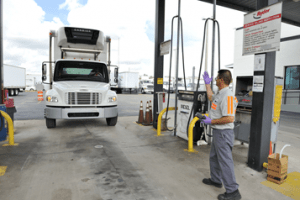As the global market matures and expands, retailers are demanding new logistics capabilities and more complex solutions to meet their supply-chain needs. Factors such as economic growth, expansion into new markets, e-commerce, and a greater acceptance of demand-driven logistics practices introduce complexities into the supply chain and generate the need for third-party logistics provider companies that are capable of delivering more specialized services.
By the same respect, theft and other forms of criminal activity continue to reach into the supply-chain network, growing more creative and sophisticated with the progression of the industry. Other forms of loss can also grow exponentially more impactful with the growing costs of supply-chain management.
In most third-party logistics (3PL) contracts, merchandise is deemed the property of the client company, and ownership of the product does not shift to the 3PL provider while it is under the 3PL’s care, custody, and control. However, at the point that the third party takes possession of the product, they typically become more accountable, and the 3PL will assume liability of goods while in their control.
Under these conditions, if losses occur while in control of the third-party logistics provider, the client retailer can file a claim. Contract language will usually include reimbursement for net shrinkage in excess of a certain agreed-upon dollar-value percentage.
However, the complexities of product loss expand far beyond securing compensation for lost product, and our role as business partners must extend beyond an insurance claim. Customer service, replenishment issues, and lost sales are just a few of the more obvious effects of these losses.
But what about the costs associated with getting the product as far as it got before it was stolen? What about shipping, customs, and transportation costs—all of which will have to be paid again to replenish lost merchandise? Product losses are everyone’s concern, which is why strong communication and effective controls are essential.
As more companies turn to 3PLs to help manage supply-chain processes and ensure operational success, loss prevention involvement must continue to progress as well. 3PL operations can provide a very valuable and cost-effective solution for many retail operations, both in terms of meeting specialized needs or in managing the overall operation. However, loss prevention must provide effective oversight in order to keep these operations effective and productive.
Here are a few things to consider when building an effective relationship with the third-party logistics provider:
Take the steps to ensure that you are ready for the relationship with the 3PL provider. Whether outsourced or managed internally, logistics is a core component of the business. Do you have a plan? Have you mapped out what needs to be accomplished and how to reach those objectives? How often will you communicate? When and who will be notified in the event of an issue or incident? There should be a proactive management plan in place that serves as the foundation of the partnership.
Establish realistic expectations. What is most important? How can it be accomplished? How will performance be measured and evaluated? Trust, flexibility, and responsiveness are indispensable elements on both sides of the 3PL provider-user relationship. What will help with all of this is communication and relationship.
Understand the value of subject-matter expertise on both sides. Retail LP professionals know and understand their products, business, capabilities, and role in the business. Communicate relevant information as necessary and appropriate to maximize the value of that expertise.
Is the third-party logistics provider hiring sufficient talent? With companies competing for supply chain, logistics management, and security talent with other firms, explore the steps that are needed to hire those that will best meet the overall needs.
How do they stand on your needs and metrics that matter most? Ask what they do best, and include your performance objectives.
Learn the strengths and weaknesses of the provider’s program. Staffing, alarms, security equipment, and related resources should be identified and evaluated. But how is the supply-chain security program executed and managed? Is there a loss prevention strategy or simply security resources?
Is the 3PL prepared for disasters? Do they have an effective crisis-management plan? Supply-chain disruptions significantly affect a retailer’s bottom line, so make sure you know how your 3PL partner is positioned to deal with them on the logistics side.
Is the third-party logistics provider adapting to the changing and evolving needs and expectations of the industry? Are they current with industry standards? What is their level of technological sophistication? Are they aware of current trends and industry challenges? Learn whether the 3PL’s performance is growing and improving.
Take the steps to ensure that these security and loss prevention needs and expectations are considered during the selection process. Defining these expectations during the selection process establishes the foundation and helps set the tone for the partnership.
As retail operations continue to grow more complex, the ability to expand our field of vision and become more entrenched in all aspects of the business only becomes more critical to the success of the retail enterprise and the growth and development of the loss prevention profession. There are many doors that we have yet to open and many areas where our knowledge and expertise can be further applied to enhance company performance.
Read a profile of one third-party logistics provider and see how it serves retailers by driving replenishment and maximizing sales in the full article: “Driving Third-Party Logistics Solutions.” The original article was published in 2015, and this excerpt was updated May 16, 2018.
